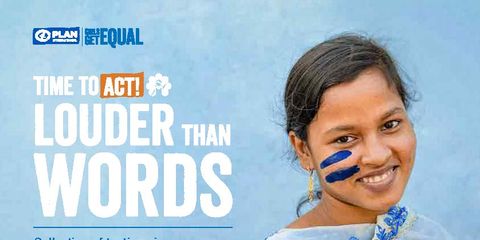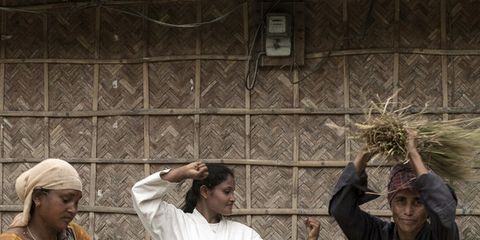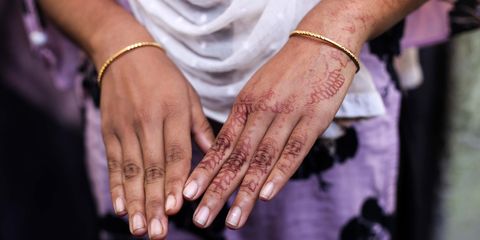On the Airwaves and in Communities: The Two Young Activists Creating Social Change
How is Bangladesh home to the third-largest prevalence of child marriage in the world, even though child marriage has significantly dropped in the last 40 years? Why are there still loopholes where a court can allow child marriage in “special cases”? Why does more access to education for girls mean lower child-marriage prevalence? And what is being done to give girls more opportunities to shape their own lives and futures?
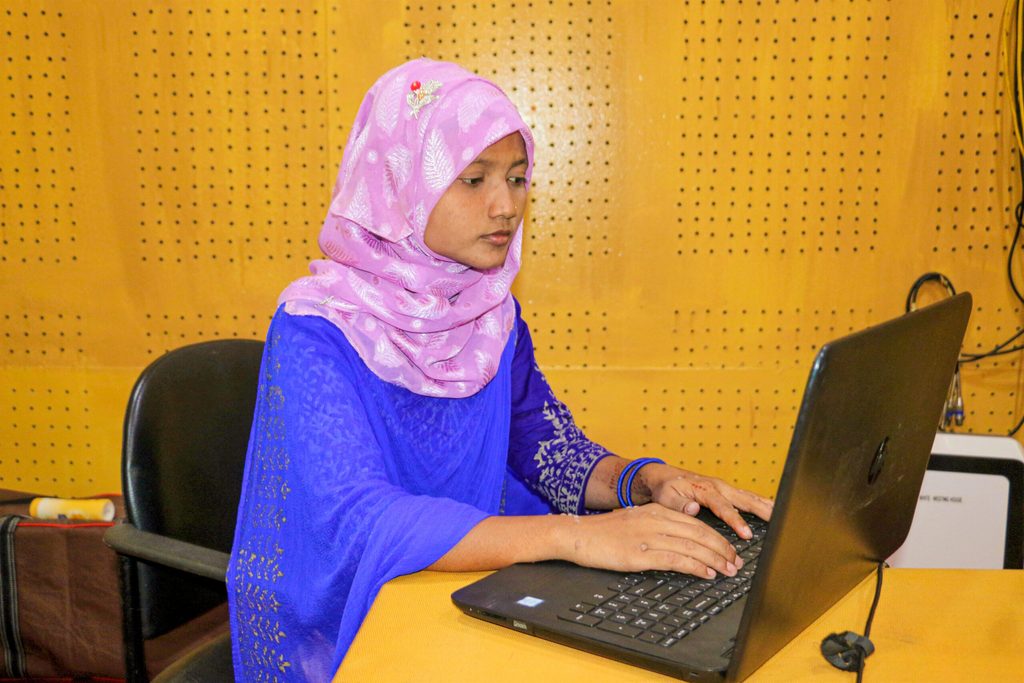
On the airwaves
These, and many more, are some of the questions being raised and tackled each day over the radio by Happy, a 23-year-old female radio journalist from Bangladesh’s Kurigram district. Since the start of the pandemic, when she was prevented from conducting her usual door-to-door grassroots community activism, this second-year post-graduate student has been hosting a widely popular show at her local community radio station, Radio Chilmari, where she shares news and awareness messages on preventing child marriage and advocates against this harmful practice.
Happy’s work is having an effect. Besides recently winning a “Joyeeta” public service award for social development and women’s empowerment from the Government of Bangladesh, Happy has been using this platform to prevent new cases of child marriage. While the number of child marriages went up during the pandemic in Bangladesh, cases in Chilmari, where her show broadcasts, have declined. Locals attribute some of this success to Happy’s show, as well as her more recent efforts to educate parents and local administrators of the risks and perils of child marriage.
This radio show is just one part of Building Better Futures for Girls, launched in 2017 by Plan International Bangladesh and supported by the Swedish International Development Agency.
Since the start of the pandemic, youth groups supported by Plan International Bangladesh, as part of Building Better Futures for Girls, have been playing a vital role in educating the public about public safety and the importance of vaccines. Working at the district level, youth groups are engaging different stakeholders through mask distributions, advocacy, and public information campaigns, including Happy’s radio show.
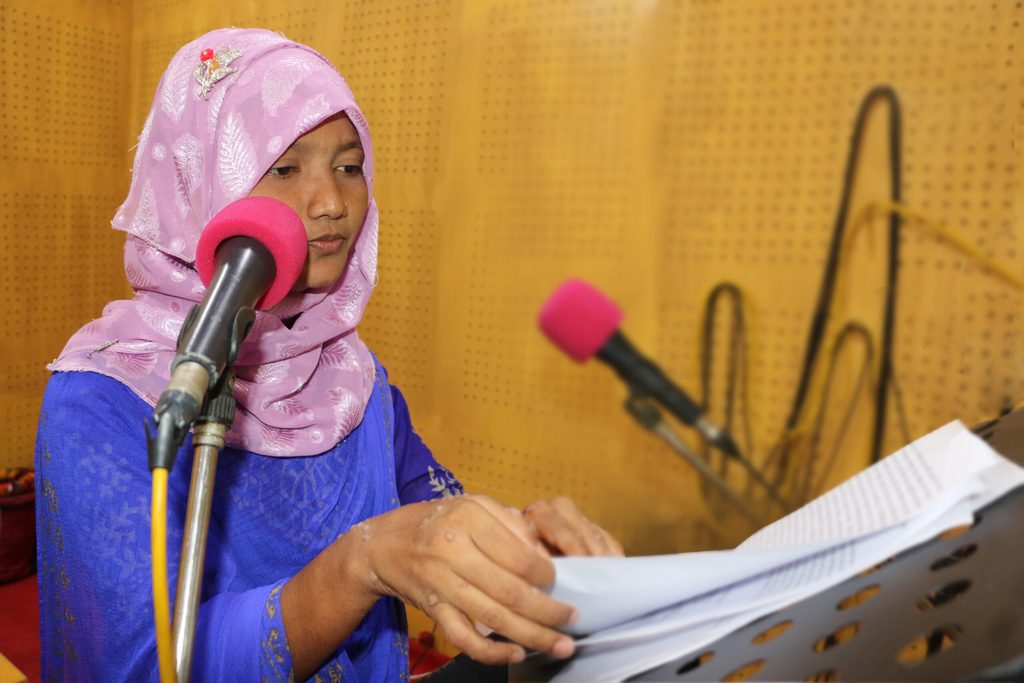
In Communities
Beyond the airwaves, Plan International Bangladesh is also inspiring other girls to become advocates in preventing and stopping child marriage. Through the Combatting Early Marriage in Bangladesh project supported by Global Affairs of Canada and Plan International Bangladesh, boys and girls alike are getting the support to help combat child marriage and reduce the vulnerability of adolescents, particularly girls. The project builds-up the agency of girls and boys and provides a supportive social environment to help people make a difference in their communities.
One such beneficiary of the project is Sweeti Akter, a student from Kathalia Upazila, Jhalakathi district, and an active member of the Combatting Early Marriage in Bangladesh project. Her experiences witnessing the suffering of her two older sisters after their young marriages made a lasting impression on her. Attending the project’s courtyard meetings and karate classes, Sweeti learned about the numerous dangers resulting from child marriage and discovered ways to feel empowered to make a difference. Subsequently equipped with a bicycle donated by the project to travel between villages, Sweeti has become a passionate and influential advocate and vocal promoter of issues relating to child marriage and girls’ health.
“At first, the villagers didn’t take my initiative very well. They didn’t use to pay attention to my words. But I didn’t lose hope. I have been continuing advocating against child marriage whenever I get some free time in between my study,” says Sweeti.
Her goal is to make her community totally free of child marriage, yet she sees endemic poverty as a substantial barrier. Sweeti and her family receive financial support from the Combatting Early Marriage in Bangladesh project, enough to allow Sweeti’s mother to open a shop selling hygiene products for girls. With less pressure on Sweeti to contribute to the family, she is free to spread the essential messages learned in her training and continue her education.
The Combatting Early Marriage in Bangladesh project is essential in communities like Sweeti’s. It not only educates girls, boys, and adults on the dangers of child marriage, but it looks at individual situations and increases the capacity of everyone to make a change.
Girls witnessing other girls like themselves fighting against these outdated social norms can spawn countless more moments of bravery to help end child marriage in Bangladesh.
Collaborating for the Future
Both the Building Better Futures for Girls and Combatting Early Marriage in Bangladesh projects ensure that girls and adults alike are working together to ensure child, early and forced marriage continues to decrease in Bangladesh. The importance of this collaboration brings collective change and provides a new form of thinking for anyone thinking of putting girls in a perilous position. What’s more, girls witnessing other girls like themselves fighting against these outdated social norms can spawn countless more moments of bravery to help end child marriage in Bangladesh.
That is why Sweeti’s infectious spirit shines on as she pursues her dream to make her community in Jhalakathi child marriage-free. And why Happy can feel inspired that collaborations are helping to improve the future for girls in Chilmari.
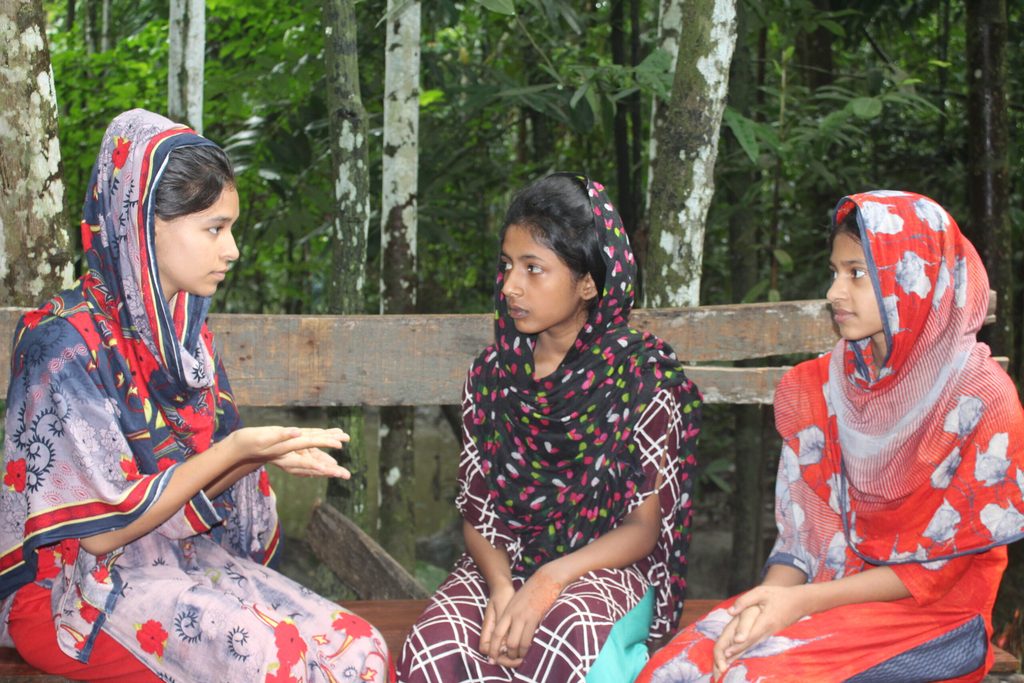
The Combatting Early Marriage in Bangladesh Project
The Combatting Early Marriage in Bangladesh project aims to combat child, early, and forced marriage and reduce the vulnerability of adolescents, particularly girls in Bangladesh. This is implemented by addressing the root causes of CEFM, including economic challenges at the household level, social norms that perpetuate gender inequality and discrimination, and lack of a strong governance mechanism to prevent and protect children from violations of their rights.
The agency of boys and girls in and out of school is strengthened by creating a supportive social environment and improving their personal, social, and financial assets. This can include grants for families to alleviate financial worries, educational school programs to improve knowledge on girls’ rights and sexual health, and the promotion of peer-to-peer support to empower them to make correct decisions.
The project also aims to tackle cultural norms more deliberately by working within the community to increase the ability of men and women to act and engage and support girls to remain in school and delay marriage – often through courtyard meetings.
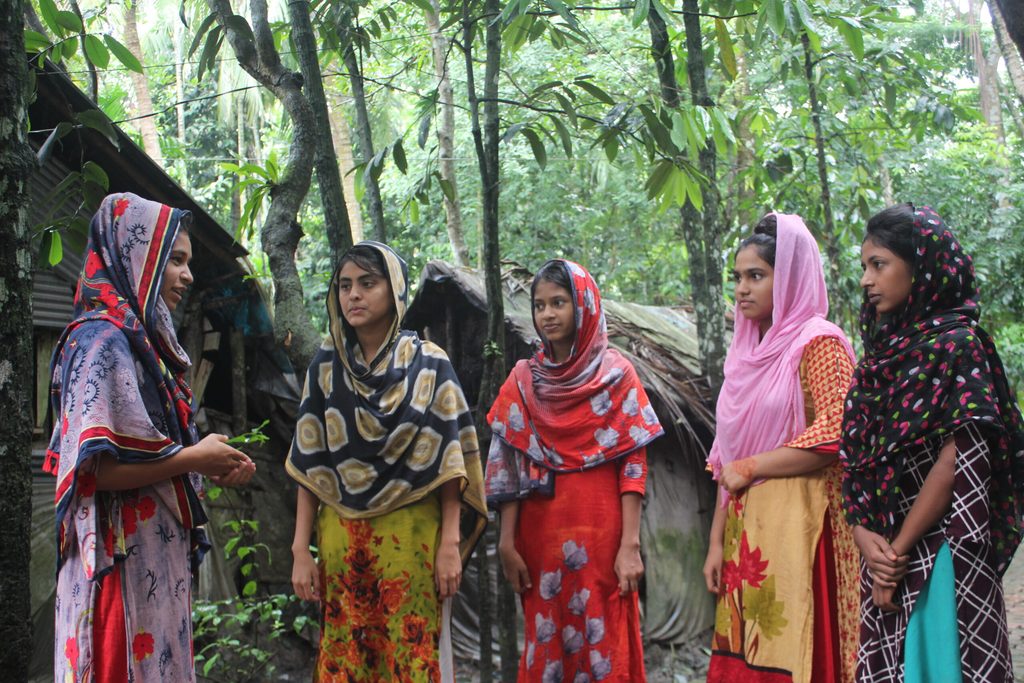
Categories: Campaigns, Sexual and reproductive health and rights, Youth empowerment
